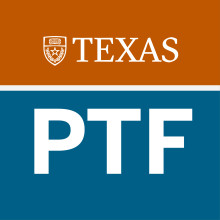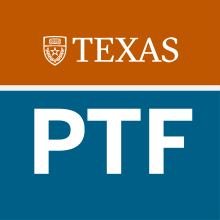Individual Fellow Initiatives

Does Increasing Course Depth While Reducing Breadth Improve Learning in College Students?
Student-centered learning strategies have been effectively used to increase academic performance and learning in students. Educators have hypothesized that course content reduction can also improve student learning. However, support for this idea is lacking. In the present project, I am planning to assess whether a content reduction strategy increases the academic performance of upper-division stem students at the University of Texas-Austin.

QR Learning for addressing social and racial injustice
The current proposal envisions developing alternative pedagogical materials for the “Measuring Racial Inequality” course, written in plain language and accessible to students from social sciences/humanities and underserved communities and families.

Offering Real-World Opportunities for Students Enrolled in Statistics and Data Science Undergraduate Research
The primary goal of this community-based service project is to provide experiential learning opportunities for undergraduates interested in statistics and data sciences while supporting the broader Austin-area community. Coordinating with local organizations, students enrolled in some of our SDS courses are gaining hands-on experience in data analysis while exploring authentic contexts. This innovative and collaborative effort provides a community-based model that allows students and local organizations to co-develop and answer real-world research questions.

Teaching Engineering through Murder Mysteries and Personalized AI Tutor
CE 357: Introduction to Geotechnical Engineering is a third year required undergraduate course that has traditionally been a challenging course for students due to its abstract nature. The average course rating for CE 357 is 3.8 in the last twenty years. I have successfully transformed the lecture modules to achieve a significant increase in interest and students’ performance in the course. Although preliminary work looks promising, I want to scientifically evaluate the effectiveness of the course and publish the findings.

Inclusive STEM Communication for Engineering Students
The challenges facing modern engineers are more complex than ever. Current engineering issues such as
algorithmic bias, data security and privacy, and sustainability do not only require technically skilled engineers,
but also engineers who are conscious about structural inequities and biases.

Gone (Back) To Texas: A Model For Alumni-led Experiential Learning
As the campus community enters a new post-pandemic era, it is clear that one of the most urgent needs following 2+ years of remote and hybrid learning is to create poignant, relevant contexts for pursuing immersive experiential learning. As universities reckon with the challenge of continuing to evolve their value propositions to meet student demand for more industry-relevant experiences, there is an opportunity to innovate how we design and deliver unique pedagogical experiences that connect more deeply with their educational and professional journey.

The “Social/Wellness Module:” Providing Space for Wellbeing and Social Learning for Incoming UT Students
My project addresses the lack of built-in social/wellness-oriented interactions in introductory courses for

Developing Experiential Learning in Organizations
My project, “Developing Experiential Experiences in Organizations,” assessed HDO students’ access to experiential learning
in organizations, particularly in the form of internships; additionally, our program aimed to provide more built-in
opportunities HDO students to engage in experiential learning. To gauge need, I surveyed HDO students. Results
demonstrated that many of our students were graduating without any organizational experience, especially first-generation

Peer Mentor Leadership Project
The Peer Mentor Leadership Project (PMLP) empowers undergraduate students to explore and develop their leadership styles. Participants design and implement mentoring and leadership projects that align with their goals and values, while assessing the impact of their work. The program emphasizes introspection, reflection, and professional growth, helping students strengthen their resumes and leadership skills.

Digital Research Apprenticeship: Projects For Intersectional Justice
Research and scholarship in Digital Humanities applies technology to humanities questions and subjects technology

Being Human in Physics
(Project completed 2023) At UT Austin, undergraduate women are about twice as likely to leave the physics major then are undergraduate men. This does not arise primarily from academic difficulties–women physics majors and men physics majors are dismissed (for academic reasons) or drop out at roughly the same rates. Rather, women are more likely to switch out of the physics major into other majors than are men.

Pharmacy Practice Lab Redesign
The College of Pharmacy is embarking on one of the biggest curricular revisions in the past decade by creating a Pharmacy Practice Lab sequence spanning all six semesters of our didactic program. The course series will combine content from seven existing courses in order to decrease redundancy and duplication to create increased alignment and reinforcement. Rather than students learning content within “the silo” of a single course, students will be required to retain and apply their knowledge and skills throughout the entire curriculum.

Podcasting as Experiential Learning in Classics
Students in pre-modern disciplines face greater challenges in finding productive and engaging avenues for Experiential Learning than students in fields whose connections to current events are more self-evident. Podcasting offers students of ancient Greece and Rome a way to connect with people outside their classrooms, both other students and interested members of the general public. It also requires them to hone their oral presentation skills and to think about how to present the same idea to different audiences, both of which are fundamental to critical thinking.

Personal Financial Literacy Among UT Undergraduates
Everyone needs to understand personal finance. Sadly, a large body of research indicates that most American adults fail basic tests of personal financial literacy. This project aims to determine whether there is sufficient personal financial literacy education on campus, and, if not, how that problem can be corrected.

Watering Two Plants With One Hose: Protocolization of Progress to Promote Practical Resource Sharing
When I first became faculty at UT Austin, I inherited an existing course; for a variety of reasons, I felt the need to overhaul all of the lectures. This process, however, proved time-consuming and I found myself unable to complete all of the lectures as originally planned prior to the start of the semester. Moreover, even the lectures that I did overhaul continued to have flaws and I was growing increasingly frustrated with the continued inadequacy of my lessons, despite devoting considerable time and energy to them. This was disheartening and my other responsibilities (e.g.

Race, Democracy, and Global Social Justice: How Studying Inequality and Vulnerability can Transform the World
My initiative will achieve better learning outcomes in undergraduate and graduate students in History and the LBJ School by examining the intersection of history and contemporary policy, specifically its disparate impact on communities of color. Currently, departments, centers, faculty and students work independently of one another and lack valuable opportunities to collaborate. Genuine collaboration has evolved into a rare and difficult concept.

Building Information Modeling (BIM) as a Proxy for Project-Based Learning Integration across the Architectural Engineering Undergraduate Curriculum
The University of Texas at Austin’s Civil, Architectural and Environmental Engineering (CAEE) department has taken several steps towards improving the preparation of Architectural Engineering students with respect to modern engineering tools, including the computing tools commonly used in engineering practice.

Towards an Anti-Racist Climate in Nursing
(Project completed 2021) Systems of oppression gain their power from silence. Faculty in the School of Nursing and across the country are not always comfortable engaging in conversations about race and racism, but these discussions are necessary in order to address the disproportionately poor health outcomes experienced by BIPOC. In response to student and faculty concerns, this project seeks to move our school towards an antiracist climate by targeting multiple layers.

Difficult Dialogues Faculty Learning Community
(Project completed 2021) Since its inception at UT in 2006, the Difficult Dialogues (DD) program has worked with over 40 faculty in 8 colleges or schools to develop Difficult Dialogue signature courses, i.e., introductory UGS courses that promote respectful and productive dialogue about difficult and controversial social issues, including race and ethnicity, gender and sexuality, religion, human rights, immigration, evolution, climate change and sustainability, and illness and mortality.

University of Texas Marketing Projects
Marketing is inherently an applied science and, as a result, students learn the most when they can see marketing theories, constructs, and models in action. Marketing is at the intersection of so many academic disciplines—economics, statistics, psychology, sociology, organizational theory and decision science; and to see the way in which each of these disciplines influences marketing decisions requires the real-world dynamics of marketing-decision-making in a dynamic real-world context.

Medieval Digital Research Lab: A Pilot Upper-Division Course
The idea for this pilot course grows directly out of departmental and university goals to increase opportunities for Experiential Learning and for new technology exposure in the Humanities; and to involve more undergraduate students in original faculty research.

Addressing Population Health through Interprofessional Community Engagement
Pharmacists are an integral member of the health care team, trained to provide care based on evidence. However, the nationwide call-to-action to transform the delivery of care requires a cultural shift in educating students in health professions programs. The rapidly evolving health ecosystem mandates practitioners to work collaboratively in teams to provide person-centered and population oriented care.

Integration of an Experiential Learning Module Into an Upper Division Science Course
Educational research has provided compelling evidence that science students learn most effectively when they are engaged in Experiential Learning, broadly defined as hands-on learning where students are doing meaningful work in their discipline under the guidance of experts. Ideally, students would be exposed to Experiential Learning at multiple stages. While programs have been successful in providing experiential approaches to underclassmen, no large-scale effort exists for upper division students at UT Austin.

Strategic Course Redesign Focused on Professional Skills
The goal of this project is to shift the focus of a set of introductory courses, that are heavy in disciplinary content, in order to make space for greater emphasis on professional skills, such as information literacy, quantitative reasoning, communication, and others. The main challenge in accomplishing the goal is that the particular courses involved have high-enrollment—2300 undergraduates enroll in each course each year and they are taught by a team of 13 faculty. Because many faculty teach the courses, it is difficult to standardize the curriculum and the expectations across sections.

Data Analysis Tools: Integrating Computational and Statistical Techniques in the Environmental Engineering Curriculum
The goal of this project is to train the next generation of environmental engineers in computing and statistical techniques to solve big data problems. Current undergraduate students in the Department of Civil, Architectural and Environmental Engineering have little to no exposure to computational and statistical methods for data analysis (e.g., big data collected from sensor networks). I proposed to integrate computational techniques in several courses throughout the Environmental Engineering Degree.

